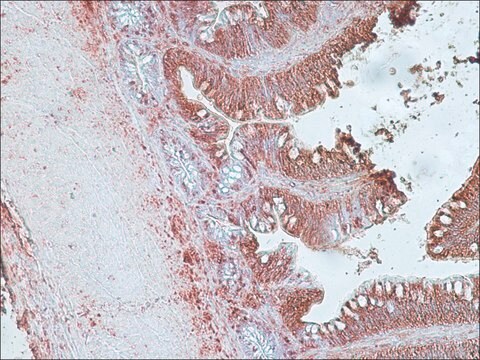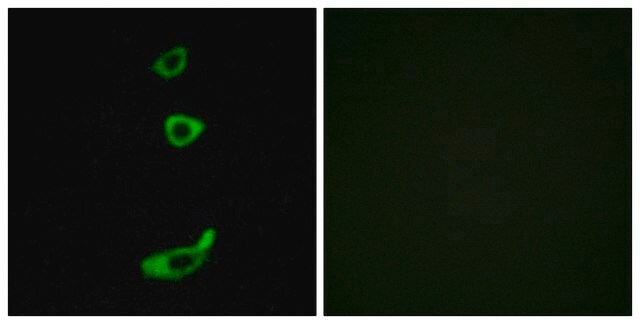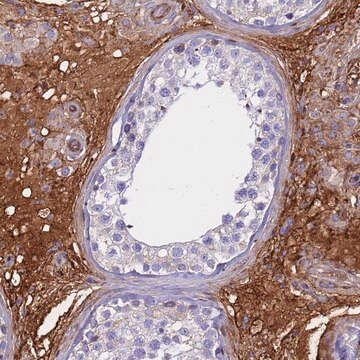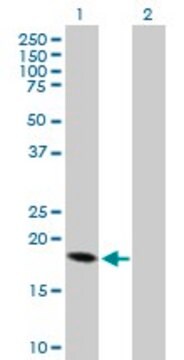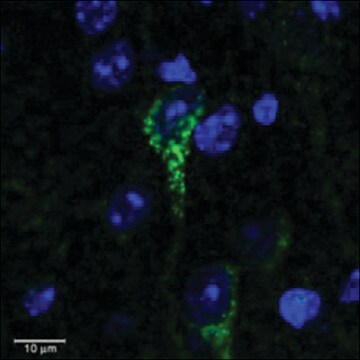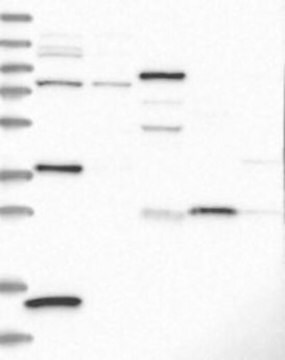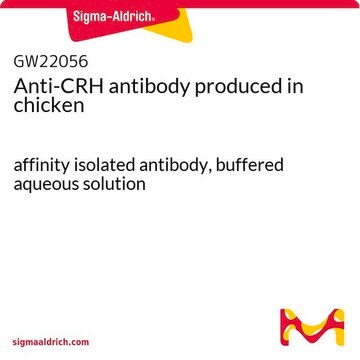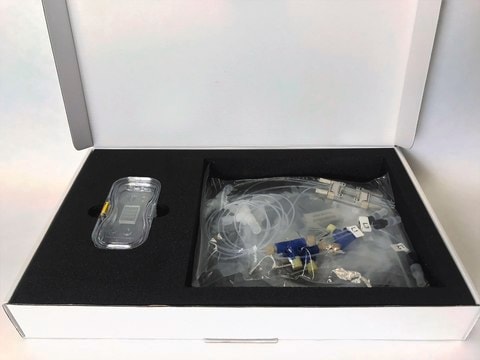WH0001392M2
Monoclonal Anti-CRH antibody produced in mouse
clone 2B11, purified immunoglobulin, buffered aqueous solution
Synonym(s):
Anti-CRF, Anti-corticotropin releasing hormone
About This Item
Recommended Products
biological source
mouse
Quality Level
conjugate
unconjugated
antibody form
purified immunoglobulin
antibody product type
primary antibodies
clone
2B11, monoclonal
form
buffered aqueous solution
species reactivity
human
technique(s)
indirect ELISA: suitable
western blot: 1-5 μg/mL
isotype
IgG2aκ
GenBank accession no.
UniProt accession no.
shipped in
dry ice
storage temp.
−20°C
target post-translational modification
unmodified
Gene Information
human ... CRH(1392)
General description
Immunogen
Sequence
SEEPPISLDLTFHLLREVLEMARAEQLAQQAHSNRKLMEIIGK
Physical form
Legal Information
Disclaimer
Not finding the right product?
Try our Product Selector Tool.
Storage Class Code
10 - Combustible liquids
Flash Point(F)
Not applicable
Flash Point(C)
Not applicable
Personal Protective Equipment
Choose from one of the most recent versions:
Certificates of Analysis (COA)
Don't see the Right Version?
If you require a particular version, you can look up a specific certificate by the Lot or Batch number.
Already Own This Product?
Find documentation for the products that you have recently purchased in the Document Library.
Our team of scientists has experience in all areas of research including Life Science, Material Science, Chemical Synthesis, Chromatography, Analytical and many others.
Contact Technical Service